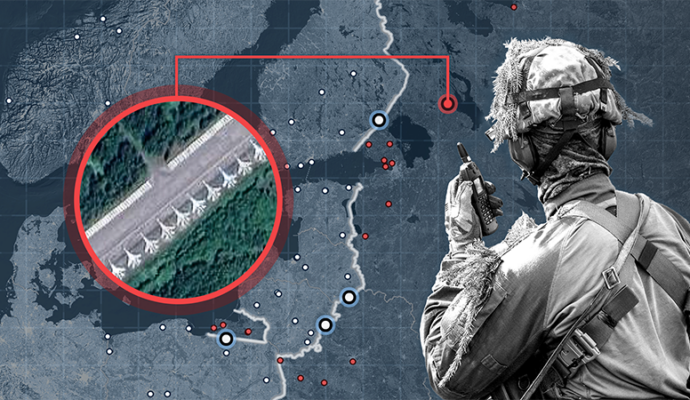
LONG BEFORE it started, it was clear that the first high-level meeting between America and China during Joe Biden’s presidency would be deemed a success only if it appeared to go badly. By this measure, both sides ought to be delighted with the show of mutual recrimination that they put on at their encounter in Anchorage, Alaska, on March 18th and 19th.
Antony Blinken, the American secretary of state, issued a litany of complaints against China’s repressions and aggressions, including an increasingly militant posture toward Taiwan and the economic coercion of Australia. China’s behaviour, he said, threatened the global “rules-based order”. Yang Jiechi, a Politburo member and Xi Jinping’s most senior envoy, responded fiercely. He accused America of meddling in his country’s internal affairs, denounced its long history of destabilising military intervention abroad and criticised its human rights abuses at home, including what he called the “slaughter” of black Americans.
Such direct confrontation in public is highly unusual in the history of face-to-face diplomacy between China and America, which typically has been marked by platitudes with references to “frank” exchanges made in private. Yet the blustery rhetoric would have been familiar to anyone who reads the press in either country. Some analysts have suggested that the Alaska blow-up was just a display for domestic audiences. It is possible that, for all the frank talk in public, some more constructive diplomacy may have taken place in private.
Even so, the meeting in Anchorage has probably set the tone for an antagonistic relationship between the world’s two most important powers. President Joe Biden’s team had signalled there would be no thaw in US-China relations after they went into a deep freeze under Donald Trump.
Relations between the two countries have worsened more through actions than words; much of that behaviour is unlikely to change. China is carrying out a ruthless imposition of authoritarian rule in Hong Kong, brutal repression of Uyghurs in Xinjiang, punitive trade actions against Australia, sabre-rattling over Taiwan and, American officials say, cyber-attacks against American targets. These actions constituted the substance of America’s public and private criticism of China in Anchorage.
Precisely while the meetings were underway, a Canadian businessman, Michael Spavor, appeared in a courtroom in Dandong, China, on espionage charges, a case brought in evident retaliation for the detention in Canada of a senior Huawei official wanted in America for alleged violations of sanctions on Iran. Michael Kovrig, a Canadian ex-diplomat, is scheduled to appear in court on similar charges on March 22nd. The imprisonment of both Canadians as apparent hostages for more than 800 days is the sort of subversion of the “rules-based order” to which Mr Blinken referred.
America’s behaviour towards China, on the other hand, may become less mercurial than under Trump. But Mr Biden’s team has kept the Trump administration’s framing of “strategic competition” for the relationship—Mr Biden has even used the term “extreme competition”—and the divide between the two countries is likely to deepen. The Biden administration has emphasised working with allies to counter and compete with China. It has invested in building up the Quad, a security alliance with Japan, Australia and India that was given new life under Mr Trump. It has also maintained the sanctions imposed under Mr Trump for human rights abuses in Xinjiang and Hong Kong; just before the Alaska meeting it announced new sanctions related to Hong Kong on two dozen Chinese officials, including a Politburo member. The decision by Mr Blinken, and Jake Sullivan, Mr Biden’s national security adviser, to raise the subject of Taiwan publicly was a clear signal of continuity from the Trump administration, which upgraded ties with Taiwan in ways that have angered China (which claims sovereignty over Taiwan).
That said, confrontation is not the sum of either America’s or China’s policy. Mr Blinken has declared that there are areas where America must confront China (such as on human rights and the bullying of other countries); others in which they must compete (economically and technologically); and some fields in which they can co-operate (eg, on combating climate change). After the meeting in Alaska, Mr Blinken said that “on Iran, on North Korea, on Afghanistan, on climate, our interests intersect”.
Mr Yang and Wang Yi, China’s foreign minister, have said previously they want a fresh start in US-China relations. Xinhua, the official news service, described the Alaska meeting as a “strategic dialogue that both sides believe was timely and helpful and deepened mutual understanding”. But there is plenty of wishful thinking in these words. Both sides place the blame solely on the other’s actions for the sorry condition of the relationship.
Another high-level meeting may not be soon in coming. The Biden administration has explicitly rejected the idea of resuming a broad “strategic dialogue” (much less described the talks in Alaska to be such). If the Anchorage conference made anything clear, it is that the tough talk is not just for show. The world’s most important bilateral relationship will continue to be one of the most contentious.
See also: We are tracking the Biden administration’s progress in its first 100 days
The Economist

